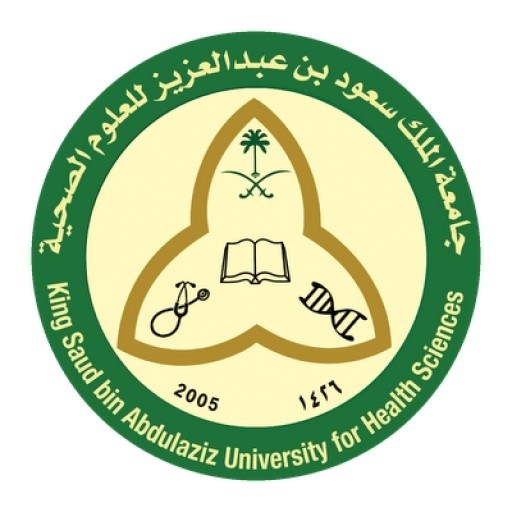Photos of university
Program Description:
The Bachelor of Science in Public Health at King Saud bin Abdulaziz University for Health Sciences is a comprehensive undergraduate program designed to prepare students to address the diverse health challenges facing communities today. This program combines foundational knowledge in health sciences with specialized training in public health principles, enabling graduates to effectively promote health, prevent disease, and improve the overall quality of life within populations. The curriculum includes core courses in epidemiology, biostatistics, environmental health, health policy and management, social and behavioral health, and global health. Students also engage in practical internships and research projects that reinforce theoretical knowledge and develop essential skills in data analysis, community engagement, health assessment, and program planning.
The program emphasizes a multidisciplinary approach, integrating biology, sociology, psychology, and health sciences to equip students with a broad understanding of the determinants of health and disease. It aims to cultivate critical thinking, communication, and leadership skills necessary for public health practitioners to operate effectively within healthcare systems and community settings. Graduates of this program can pursue careers in various sectors, including government health agencies, non-governmental organizations, international health organizations, and private sector entities dedicated to health promotion and disease prevention. The program supports students in becoming proactive contributors to public health policy development, health education campaigns, and research initiatives that address both local and global health issues.
With a commitment to academic excellence and community service, the Bachelor of Science in Public Health at King Saud bin Abdulaziz University for Health Sciences strives to produce competent, ethical, and innovative public health professionals who are dedicated to advancing health equity and improving health outcomes across diverse populations. This program prepares students not only for immediate employment but also for lifelong learning and career advancement in the dynamic field of public health.
Level One
- English Communication Skills I
- English Language Structures and Drills I
- English Academic Reading & Vocabulary I
- Arabic Language Skills I
- Islamic Culture
Level Two
- English Language Structure & Drills II
- English Academic Reading & Vocabulary II
- Arabic Language Skills II
- Physics for Health Sciences
- Biology for Health Sciences2
- Chemistry for Health Sciences
Level Three
- Advanced English Grammar
- Advanced English Reading & Vocabulary
- Discrete Math
- Fundamental of Information Systems
- Computer Programming 1
- Principles of Healthcare Management
Level Four
- Calculus for Health Informatics
- Principles of Health Information Management
- Introduction to Database Systems
- Computer Programming 2
- Computer System Architecture
Level Five
- Data Structure & Algorithms
- Information Systems Analysis & Design
- Statistical Analysis
- Finance Management in Healthcare
- Database Management System
- IT Project Management
Level Six
- Health Information Systems
- Computer Networks
- Web-centric computing
- Modern SW Engineering
- User Interface Design (elective course )
- Medical Image Processing (elective course )
- Selected Topics in Health Informatics I (elective course )
Level Seven
- Managerial & Communication Skills
- Capstone Project 1
- Data Warehouse & Decision Support Systems
- Natural Language Processing
- Research Methods
- Enterprise Resource Planning Systems
Level Eight
- Quality Management in Health Care
- Legal & Ethical Issues in HI
- Information Security
- Capstone Project 2
- Semantic Web HIIS(elective course )
- Selected Topics in Health Informatics II (elective course )
Requirements
- A Bachelor’s degree obtained from an accredited university in medicine, dentistry, nursing, pharmacy, radiography, laboratories, medical engineering, and management of health information, and information technology, plus two years of work experience within the healthcare sector.
- A minimum GPA of 3.75 out of 5.0.
- A minimum score of 550 in TOEFL examination or a minimum score of 6.0 in ILETS examination.
- Two academic recommendations by previous instructors.
- A letter of recommendation/consent from the employer.
- Applicants will be further interviewed on individual basis prior the final admission.
Funding for the Bachelor of Science in Public Health program at King Saud bin Abdulaziz University for Health Sciences is primarily provided through a combination of governmental support, university funds, and potential scholarships. The Saudi Ministry of Education and the Ministry of Health allocate significant resources to support health sciences education, ensuring that students enrolled in programs like Public Health receive financial assistance to facilitate their academic pursuits. The university also offers merit-based scholarships and financial aid options for outstanding students and those with demonstrated financial need, promoting equitable access to education.
Tuition fees for Saudi students are typically subsidized by the government, reducing the financial burden and making higher education accessible to a broader demographic. International students may have different fee structures, often paying higher tuition, which can be partially covered through scholarships or financial aid programs available at the university. The university encourages research and community service projects, some of which may include funding provisions to support student involvement and research initiatives in Public Health.
In addition to direct financial aid, students may benefit from work-study opportunities within the university to gain practical experience while financially supporting their studies. Partnerships with healthcare organizations and government agencies also offer internship funding and sponsorship opportunities, providing students with practical training and financial remuneration. Furthermore, external funding sources, such as international health organizations and private foundations interested in public health, occasionally support research projects and conferences involving students, contributing to their overall financing.
Overall, students enrolled in the Public Health program at King Saud bin Abdulaziz University for Health Sciences are supported through a comprehensive financial framework that combines government funding, university-sponsored scholarships and aid, work opportunities, and external sponsorships, all aimed at fostering an environment conducive to academic excellence and professional development in the field of public health.
The Bachelor of Science in Public Health at King Saud bin Abdulaziz University for Health Sciences is designed to prepare students for careers in the diverse field of public health. The program aims to equip students with fundamental knowledge in health sciences, epidemiology, health promotion, environmental health, health policy, and management. Emphasizing a multidisciplinary approach, the curriculum integrates courses in microbiology, biostatistics, health education, and behavioral sciences to foster comprehensive understanding and practical skills. Students engage in both theoretical learning and hands-on training through laboratory work, community service projects, and internships, aiming to address health challenges at individual and population levels. The program also focuses on developing critical thinking, research capabilities, and ethical standards necessary for improving health outcomes and implementing effective public health strategies. Graduates are prepared for roles in government health agencies, NGOs, healthcare organizations, and international health institutions, where they can contribute to disease prevention, health promotion, policy development, and health system strengthening. The university's collaboration with healthcare centers and public health institutions provides students with valuable real-world experiences. Additionally, the curriculum emphasizes cultural competence and ethical considerations vital for working within diverse communities. The program is aligned with national and global health priorities, ensuring that graduates are equipped to respond to contemporary health issues such as infectious diseases, chronic illness, environmental hazards, and health disparities. Students are encouraged to participate in research projects and community outreach efforts, fostering a commitment to lifelong learning and public service. The faculty comprises experienced professionals and academicians dedicated to excellence in teaching, research, and community engagement. Ultimately, the Bachelor of Science in Public Health aims to develop competent, innovative, and socially responsible public health practitioners capable of making meaningful contributions to society’s health and well-being.

